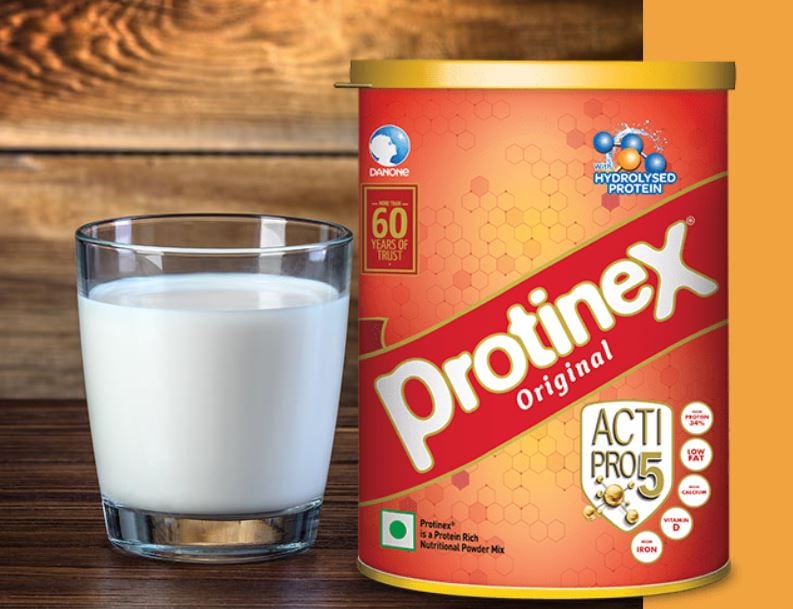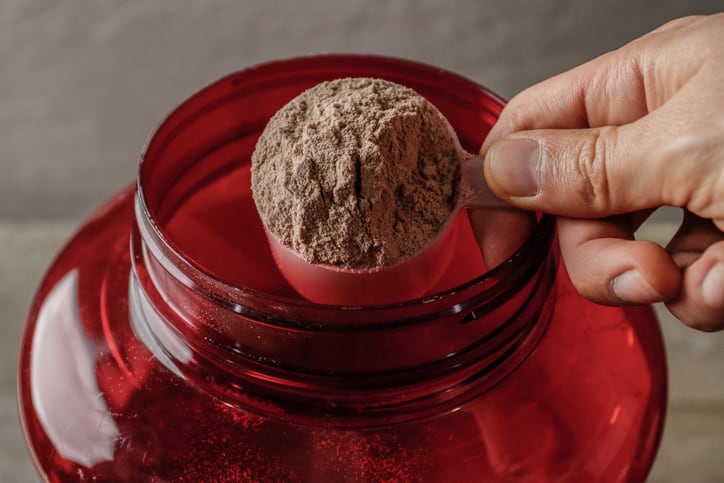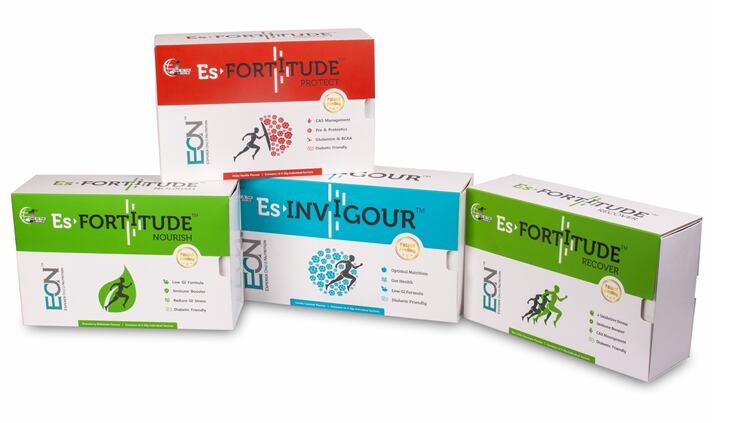This is the first such study investigating the effects of protein supplement on plasma levels of essential amino acids (EAAs) in a healthy Indian population.
In India, studies on protein supplements have generally focused on children, pregnant women, elderly, patients, athletes but not on the healthy middle-age population which form most of the population.
Published in the Journal of Nutrition and Metabolism, Hindawi, the findings suggest that protein supplementation combined with milk could be a convenient method of protein intake for Indians.
Milk is the most commonly consumed protein source in India, although researchers said milk alone may not be sufficient to meet the daily protein requirement of an individual. Protinex is made with peanut protein hydrolysate.
Protein is important for synthesising and maintaining muscle, immunity and maintaining general metabolic health.
Methodology
In this double-blind, randomised study, 20 healthy adults aged 20 to 45 years (BMI: 18.5 to 29.9kg/m2) were recruited in Bengaluru, India.
Subjects were divided into either the control or treatment group.
The treatment group was given 35g of protein supplement (Protinex, Danone India) dissolved in 200mL of milk while the placebo group had a maltodextrin-based powder also in 200mL of milk.
When dissolved in milk, the test protein supplement provided 244 kcal and 18 g of protein (12 g from supplement and 6 g from milk) while the placebo provided 252 kcal and 6 g of protein (from milk).
Blood samples were collected from participants at baseline (fasting state) to analyse for EAAs. Participants then consumed the assigned product within 10 minutes, and blood samples were collected at 60 and 120 minutes after consumption.
The nine EAAs analysed were isoleucine, leucine, valine, methionine, lysine, threonine, tryptophan, phenylalanine and histidine.
Protein power
In the treatment group, the mean levels of all the amino acids increased significantly (p<0.01) from baseline to 60 minutes, although there was no significant change from 60 to 120 minutes. However, since the levels peaked at 60 minutes, they continued to remain high even at 120 minutes.
The amino acid plasma levels rose between 24% to 78% from baseline to 60 minutes. In particularly, plasma levels of branched-chain amino acids (BCAAs) like valine, leucine and isoleucine increased 24%, 35% and 78% respectively.
The other EAAs including histidine, phenylalanine, tryptophan, threonine, lysine, and methionine, increased between 27% to 61%.
In the placebo group, mean amino acids levels did not vary significantly across the three time points, with changes in plasma levels ranging from -2.3% to 12.5%. Researchers said the increase of amino acid in the control group was likely cause by the milk component.
This study thus reports that the consumption of Protinex could significantly increase circulatory EAAs in healthy Indians after one hour.
Researchers said measuring circulatory EAAs in blood was important to estimate uptake by the body. They explained that amino acids appear in the bloodstream upon food consumption, but then disappear from circulation as they are taken up by different tissues especially skeletal muscles.
In this study, isoleucine reported the highest plasma amino acid levels among the other BCAAs. This finding is worthy as researchers pointed out that besides its protein synthesis role, other studies have reported isoleucine playing a role in glucose homeostasis.
According to the International Diabetes Federation, about 9% of India’s population (77 million people) is diabetic.
Researchers said their current findings can provide a baseline for future studies to evaluate the role of EAAs in healthy or diseased individuals, especially type 2 diabetes.
One limitation of this study was its acute effect of protein supplementation. The chronic effects of protein supplementation on the amino acid pool and long-term physiological effects were not investigated.
Nevertheless, this study could be used as a basis to explore prolonged sampling in the future.
Source: Journal of Nutrition and Metabolism, Hindawi
https://doi.org/10.1155/2020/8946820
“Acute Effect of a Protein Supplement on Targeted Plasma Amino Acid Profile among Healthy Asian Indians: A Randomized Controlled Trial”
Authors: Ammu Kurien, et al.




